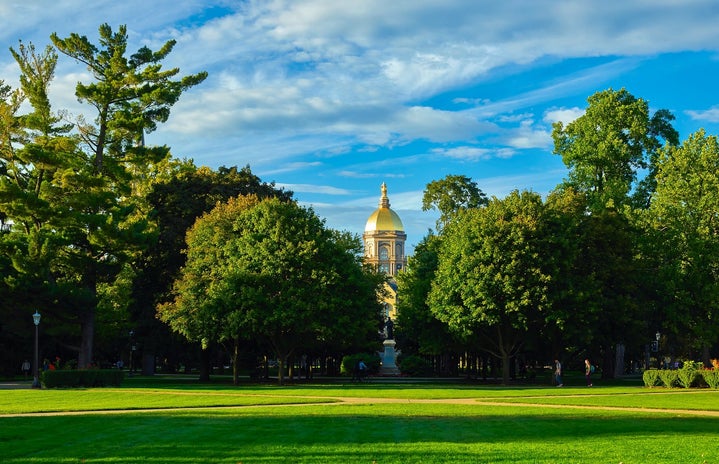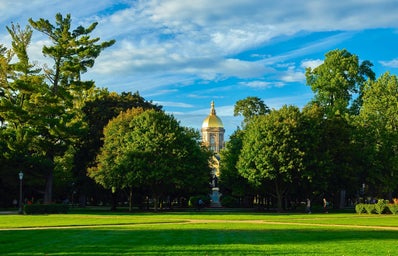On February 9, the 92nd Academy Awards will air on ABC. This past year produced tremendous films from all around the world, by Hollywood veterans as well as many newcomers to the industry. Next week the enigmatic Academy will vote on the best of the year. Though I am eager to see who goes home with an Oscar, I believe these awards have become trivial titles that say more about those voting for the Academy and less about the films themselves. There are three films in particular that I would like to bring to your attention: Little Women, The Last Black Man in San Francisco, and The Farewell. Only one was recognized by the Academy Awards.
Firstly, I must address Greta Gerwig’s 2019 masterpiece, Little Women. I left the theaters awestruck. It had already won the Oscar for Best Picture in my mind. How could anyone leave that film and not want to endlessly praise everyone involved, especially writer and director Greta Gerwig? Hence, it was much to my surprise when I heard the film only received six nominations. This may seem like quite a few regularly, but Little Women is no regular film. In comparison, Joker (2019) received eleven nominations, though it has a significantly lower score on Rotten Tomatoes, agreed upon by both critics and audiences. There is one nomination in particular that Little Women certainly deserved: Best Director. There are five directors nominated in the category; all are men and none are Greta Gerwig. In 2017, Greta Gerwig was nominated for Best Director for her debut film Lady Bird, and I believe that Little Women is of the same or higher caliber. It baffles me that Gerwig was excluded from the category this year. Another snub that upset me was the fact that Little Women did not get nominated for its cinematography. The colors; the vast landscape shots; the lighting. I do not understand what was going through the Academy’s mind. Did they even see Little Women?
My second gripe with the Oscars this year is the complete oversight of director Lulu Wang’s first major feature film, The Farewell. I saw this film over the summer and I still think about it all the time. It stars Awkwafina as a Chinese-American millennial who finds out her beloved grandmother has terminal cancer and doesn’t know it. Awkwafina’s character is upset and confused that her family is withholding her grandmother’s impending death from her. The film addresses the culturally Chinese tradition of restricting what a sick person knows about their own condition so the family can bear the emotional burden. Written and directed by Lulu Wang, The Farewell is partly autobiographical. The deeply personal connection is evident in the film, which makes it that much more powerful. It is unlike any other film I’ve seen. And I cannot believe the Academy ignored it. It did not receive a single nomination. If it were up to me, Lulu Wang would be nominated for Best Director, Awkwafina would be nominated for Best Actress, and the film itself for Best Picture. Alas, I have no say (unless the Academy wants to hire me).
Finally, perhaps the snub I am most enraged with, I must talk about my favorite film of the year: The Last Black Man in San Francisco. I don’t even know where to begin with this film. All I know is that you must watch it. Along with The Farewell, The Last Black Man is an A24 film, a production company known for creating beautiful hidden gems. That is precisely what The Last Black Man is (though I wished the Academy recognized these secret treasures). The directing, the cinematography, the score, the acting are all done by newcomers. This is Joe Talbot’s, the director’s, debut film. The idea came to him by talking with his buddy and star of the film, Jimmie Falls. Neither had ever made a film before. The astounding score was created by Emile Mosseri, another newcomer, and the cinematography was done by Adam Newport-Barra, a friend of Talbot’s as well. The scene-stealer is supporting actor Jonathon Majors, who plays the best friend of Jimmie Fall’s character. The Last Black Man in San Francisco is the story of Jimmie (Jimmie Falls) living in Bayview-Hunters Point, San Francisco who simply wants to live in the house his grandfather built in 1946. He and his best friend, Mont (Jonathon Majors), skateboard around the city, loiter around the Victorian house that is no longer in Jimmie’s possession, and interact with the local gang that heckles the two from the side of the road. Jimmie Falls’ portrayal of desperation is spot-on as his character continually takes care of and tries to buy the house his family once owned. It is a quiet yet beautiful film. The ending left me speechless. It begs the questions: who is the real last black man in San Francisco?
If you want, the Academy Awards is on at 8 p.m. EST, but I’d quicker suggest these three films.



